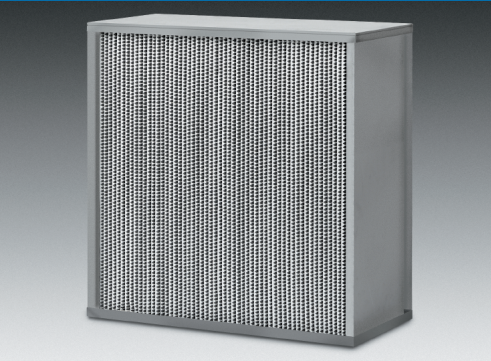Because billions of particles lace unconditioned air with dust, dirt, bacteria and pathogens, your plant’s air filters are crucial to preventing contamination and ensuring food safety. But when it comes to filtration, more isn’t necessarily better. This is especially true with high-efficiency particulate air (HEPA) filters. While HEPA filters may be a necessity for some plant environments, they could be expensive overkill for others.
According to the FDA, HEPA filters have “an efficiency of 99.97 percent to 99.99 percent when tested using the dioctyl phthalate (DOP) test with a particle size of 0.3 microns.” This means that these filters can remove all yeast, mold, bacteria and other particles that are larger than 0.3 microns. The FDA recommends you use HEPA filters in areas where RF-RTE foods are processed or exposed.
However unless your plant requires a sterile environment (aseptic packaging, for example), most spaces require only 95 percent filtration which can be achieved through a less costly filter like a MERV 14.
Here are some key reasons why HEPA filters may not be needed for your plant:
-
Types of organisms—At a 99.99-percent efficiency, HEPA filters do offer finer filtration, catching more particles than filters that can only catch 95 percent of organisms. However, these organisms are not typically free-floating. This means that they are attached to other, bigger particles that are, indeed, captured by the 95-percent filters. A meat processing plant is an example of a facility with these types of organisms and would thus not require HEPA filters.
-
Power—Because of the higher pressure drop through HEPA filters, they require about 15 percent more horsepower to operate, so more energy is used. Also keep in mind that the air handling unit itself may need to be bigger to house HEPA filters because of their larger size.
-
Cost of purchase and maintenance—HEPA filters are not only more expensive upfront, they also require increasing, ongoing maintenance costs. These filters need to be replaced once or twice a year depending on the environment of the plant.
While providing your plant with additional filtration isn’t harmful, HEPA filters may not be the most cost-effective option for your plant. Unless your facility is sterile, HEPA filters may result in unnecessary expenses for your plant due to the fact you could’ve achieved the same result more cheaply with a filter that operates at 95-percent efficiency such as a MERV 14.
To learn more about HEPA filtration, email me at foodforthought@stellar.net.



